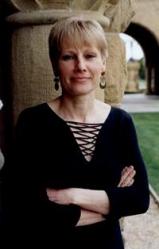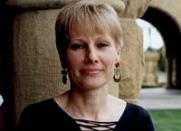 “Eat this brand of yogurt and you’ll help save the planet,” the label on the carton intones. Um, really?
“Eat this brand of yogurt and you’ll help save the planet,” the label on the carton intones. Um, really?
Maybe not, but the stories we tell ourselves about our choice of yogurt, or soap, or hybrid car nonetheless say a lot about how we, as a society, view ourselves and our relationship to the world around us.
Professor Ursula Heise, eco-critic in Stanford University’s English department, spends her days untangling these narratives. She looks at everything from that yogurt carton to the Book of Revelation, dissecting how words, language, symbols, and discourse influence how environmental science is communicated, how the science itself is done, and how societies seek solutions to problems such as mass extinction and climate change.
Along the way, she says she’s found that some of our stories have become tired (i.e. the “end of the world” narrative first told in Revelation) and others at times delusional (see your grocery list). She also has a few new storylines to suggest for environmentalists and others who are serious about salvaging some scraps of the natural world.
“We need to shift from thinking about what ecosystems used to be, and how we can get back to an [environmental] baseline,” she says. “The conversation needs to be about to what kind of world we want for the future and to work toward that.”
Part of that conversation, of course, will be engaging our oversized role in shaping the world around us, now that we live in the Anthropocene, an era when humans have impacts on a planetary scale.
There is a sense, Heise says, “that from here on out we will self-consciously live in a world where nature is not the ‘other’ out there, but where nature is created by us. We will live in an environment that is synthetic, where even the most ‘natural’ parts of the environment will be human-made in some fundamental sense.”
In this interview, Heise covers topics ranging from the ivory-billed woodpecker to the horrors of factory farming, from string theory to science fiction — and yes, she talks about how we’ve convinced ourselves that what kind of yogurt we eat has some real bearing on the future of the planet.
Free MP3. (Right click, select “Save Link As.”)
This interview is part of the Generation Anthropocene project, in which Stanford students partake in an inter-generational dialogue with scholars about living in an age when humans have become a major force shaping our world.



